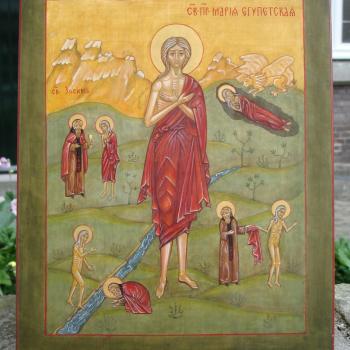“We wish to scream, but there are no ears that wish to hear.”
Those are the words of Bishop Francis Y. Kalabat, leader of St. Thomas the Apostle Chaldean Eparchy of the U.S.A., in a letter expressing his frustration at the lack of response by the world to the ongoing crisis in Iraq. Bishop Francis urged Chaldeans and other Catholics to support relief efforts for the people of Mosul who have been displaced by ISIS insurgents.
Bishop Francis, along with Chaldean Bishop Sarhad Jammo, led a delegation to the United Nations last week which resulted in the U.N. Security Council’s adoption of a resolution regarding Iraq and Syria. The Chaldean delegation met with United Nation’s Deputy Secretary-General Jan Eliasson in New York.
The U.N. resolution which was passed on August 15 approved sanctions against militants in Iraq and Syria–noting that the militants, particularly ISIL, have over the past two months carried out deadly attacks in Iraq and Syria; and the Council unanimously adopted a United Kingdom-led resolution noting grave concern at
“the negative impact of their violent extremist ideology and actions on the stability of the region, the devastating humanitarian impact on the civilian populations and the role of these groups in fomenting sectarian tensions.”
According to a report on the St. Thomas the Apostle Eparchy website:
Ongoing turmoil in northern Iraq has led the U.N. to designate its highest level emergency–“Level 3”–for the resultant humanitarian crisis, citing the scale and complexity of the situation, which is impacting tens of thousands of people that have been forcefully displaced by the armed group, Islamic State.
In its resolution, the Security Council deplored and condemned in the strongest terms “the terrorist acts of ISIL and its violent extremist ideology, and its continued gross, systematic and widespread abuses of human rights and violations of international humanitarian law.”
The Council, observing that that ISIL is “a splinter group” of Al-Qaida, recalled that ISIL and Al-Nusra Front are included on the Al-Qaida sanctions list and, as such, expressed readiness to consider listing individuals, groups, undertakings and entities providing support to ISIL or to Al-Nusra Front, “including those who are financing, arming, planning or recruiting for [those groups] and all [Al-Qaida associates] through information and communications technologies including the internet and social media or through any other means.”
Demanding that ISIL, Al-Nusra Front and all other individuals and groups associated with Al-Qaida cease all violence and terrorist acts and disband, the Council called on all UN Members States to take national measures to “suppress the flow of foreign terrorist fighters,” bring them to justice and engage with those at risk of being recruited to discourage travel to Syria and Iraq.
It also reaffirmed that States shall prevent the direct or indirect supply sale or transfer to ISIL and Al-Nusra and associated individuals and groups, of arms and related materials. The Council also notes with concern that oilfields and related infrastructure controlled by ISIL and Al-Nusra are generating income which support their recruitment efforts and strengthen their operational capability to organize and carry out terrorist attacks.
Recalling that the asset freeze, travel ban and arms embargo requirements in paragraph 1 of its resolution 2161 (2014) apply to ISIL, Al-Nusra Front, and all other individuals, groups, undertakings, and entities associated with Al-Qaida, the Council directed the team tasked with monitoring violations of those sanctions to report “within 90 days on the threat, including to the region, posed by [ISIL and Al-Nusra], their sources of arms, funding, recruitment and demographics, and recommendations for additional action to address the threat.”
Annexed to the Council’s resolution are the names of the six individuals added to the Al-Qaida sanctions list.
In his letter on the eparchy’s website, Bishop Kalabat expressed frustration at media coverage of the atrocities, and discouragement at the efforts of the U.S. government. President Obama’s definition of the crisis as “an Iraqi problem” with which the U.S. will not be involved was, in Bishop Kalabat’s words, “simply EVIL.”
Of the relief efforts being organized by the Chaldean Diocese, Bishop Kalabat writes:
 HOW CAN YOU HELP?
HOW CAN YOU HELP?
1. You Can Help Financially. With 100,000 families leaving Iraq under threat of violence, the Chaldean Diocese has concentrated at this time on providing the support these refugees will need in other countries. A website has been established to provide current information regarding the crisis, and to accept donations which will be transferred from the Chaldean church here in the U.S. directly to the church in the local area, so that funds will reach the persons most in need.
If you are able to contribute, visit the website helpiraq.org. If you prefer to contribute via check, you can mail your contribution to:
Chaldean Catholic Church
ATT: Mosul Relief
25603 Berg Road
Southfield, MI 48033
2. You Can Join in Prayer. In Michigan, St. Thomas the Apostle Chaldean Catholic Eparchy will hold a prayer rally in downtown Detroit this Friday, August 22, at 2:00 p.m. Participants in the prayer rally will process from Cobo Hall to the Federal Building, concluding with devotions to the Divine Mercy at 3:00 p.m.
















